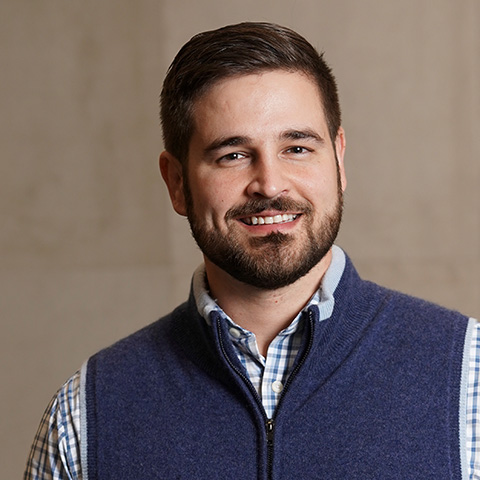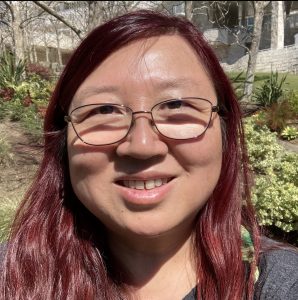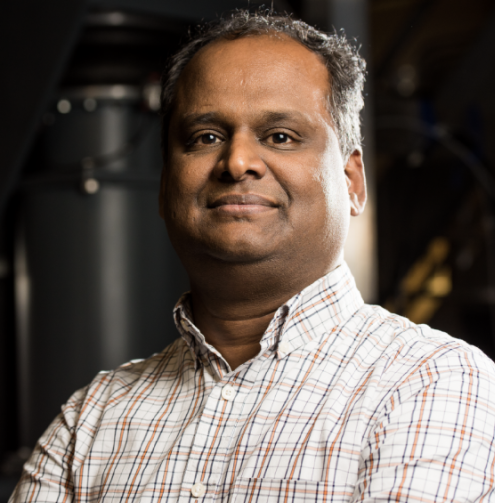May 1, 2024
Remote
Washington D.C., DC, USA
Event Contact
Helen Wright
hwright@cra.org
Event Type
Event Category
Tags

The Computing Research Association-Industry (CRA-I) hosted a virtual roundtable event on May 1st, from 3-4:30 PM ET, focusing on Generative AI (GenAI) for Research and Science.
Generative Artificial Intelligence (GenAI) is at the forefront of technological advancement and has the potential to transform and accelerate research across diverse fields. The goal of this roundtable was to discuss examples of new frontiers of GenAI in both academia and industry, consider the impact on scientific discovery and the R&D community, and discuss how to ensure responsible use and development. The roundtable looked at use cases from various fields such as biomedical, energy, and materials science. The aim was to inspire and enlighten the broad research community, while emphasizing the importance of caution to ensure that advancements benefit everyone.
Elizabeth Bruce (Moderator)
Microsoft
Elizabeth serves as Director and Strategy Lead on the Innovation + Society team at Microsoft where she leads a team focusing on innovation ecosystems. Her team invests in programs that enable and accelerate research in critical emerging technology areas and advance responsible development for the benefit of society. Elizabeth has 15+ years of experience building and leading diverse high impact teams at the intersection of industry, academia, and government. Her expertise in identifying emerging trends and creating strategic partnerships to accelerate innovation and drive positive change. Prior to Microsoft, Elizabeth spent over a decade at the Massachusetts Institute of Technology (MIT) leading research initiatives and industry partnerships. Elizabeth served as Executive Director at the Institute for Data, Systems, and Society (IDSS) and co-founded the MIT Big Data Initiative at the Computer Science and AI Lab (CSAIL). She holds a Master’s degree from MIT in Ocean Engineering and a BS in Electrical Engineering from the University of Washington.

Travis Johnson
Indiana BioScience Research institute
Dr. Travis S. Johnson is a researcher working at the intersection of data science, medicine and human genetics. In his role at the Indiana Biosciences Research Institute (IBRI), he supports efforts across disease teams to analyze high throughput data, facilitate the use of complex computational tools and develop novel data science solutions. Before his start at the IBRI, Johnson started a faculty position at Indiana University School of Medicine department of biostatistics and health data science. During that time, he developed an independent research focus in machine learning, high throughput sequencing analysis, single cell technologies and multi-omics. Besides his independent research, Johnson has a strong record of industry partnerships demonstrated by his bioinformatics consulting for Vascugen and Eli Lilly and Company. He believes these close partnerships with research shareholders across industry, academia and healthcare providers will drive the most important discoveries.
Jing Liu
University of Michigan
Dr. Jing Liu is the Executive Director of the Michigan Institute for Data Science at the University of Michigan. She also co-directs two campus-wide postdoctoral training programs, the Michigan Data Science Fellows program, and the Eric and Wendy Schmidt AI in Science Postdoctoral Fellowship program. Dr. Liu designs and implements many programs to enable groundbreaking data science and artificial intelligence (AI) research, and promotes ethical and responsible research. She is a big proponent of developing institutional capacity to adopt emerging technologies at speed and at scale for academic research. In addition, she builds extensive collaboration with organizations in both private and public sectors for joint research and to transform organizational decision-making through cutting-edge data science and AI methods. Dr. Liu also develops collaborations across many academic data science institutes. Dr. Liu received her PhD in Biology from the California Institute of Technology, and did her postdoctoral training at Stanford University. Major awards include the University of Michigan Research Leadership Award, the China Book Award and the China National Library Book Award.

Vijay Murugesan
PNNL
Dr. Vijay Murugesan is a staff scientist in the Physical Sciences Division and group leader for the Materials Sciences group. His research focuses on charge/mass transfer across heterogeneous interfaces and
materials. He frequently partners with the DOE Office of Science, Basic Energy Sciences program, as well as the DOE Office of Electricity and Office of Energy Efficiency & Renewable Energy to explore chemical stability and resiliency of energy storage materials. In 2018, he was selected as focus area lead for the Joint Center for Energy Storage Research, DOE‘s energy storage hub where he leads a multidisciplinary team of scientists across national labs and academic institutions. Murugesan has published more than 100 peer-reviewed articles in high-impact publications such as Science, Nature Energy, Angewandte Chemie, and Advanced Materials among others. He has given invited talks at conferences and symposia around the world, including the 2020 International Coalition for Energy Storage and Innovation Conference in Sydney, Australia. Murugesan holds a PhD in Physics from Bharathiar University, India, and an MS in Physics from PSG College of Arts and Science, India.

Neil Thompson
MIT FutureTech
Dr. Neil Thompson is the Director of the FutureTech research project at MIT’s Computer Science and Artificial Intelligence Lab and a Principal Investigator at MIT’s Initiative on the Digital Economy. Previously, he was an Assistant Professor of Innovation and Strategy at the MIT Sloan School of Management and a Visiting Professor at the Laboratory for Innovation Science at Harvard. He has advised businesses and government on the future of Moore’s Law, has been on National Academies panels on transformational technologies and scientific reliability, and is part of the Council on Competitiveness’ National Commission on Innovation & Competitiveness Frontiers. His lab focuses on the big trends in computing and how they impact the economy and society more broadly.
Elizabeth Bruce 
Microsoft
Tammy Toscos
Parkview Health
With over 15 years of experience in informatics research, Tammy Toscos is passionate about increasing patient engagement and containing the cost of healthcare with the effective use of technology. As the Director of Health Services and Informatics Research at Parkview Health, she lead an interdisciplinary team that focuses on developing and evaluating innovative solutions for health and wellness. She am driven by the mission of empowering individuals to improve their quality of life.

 Sharing Healthcare Data Workshop
Sharing Healthcare Data Workshop





